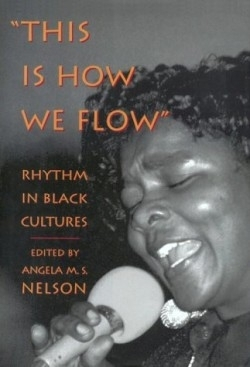
This is How We Flow
Rhythm in Black Culture
An often quoted and accepted belief in both musical and cultural studies is that African culture places a great importance upon rhythm. Unfortunately, all too often this descends into caricature, as once this belief is stated, it is then assumed to be true without any backing scholarship. The statement “they’ve got natural rhythm” is extremely close to being a racist cliché. This selection of essays, edited by Angela M. S. Nelson, goes a long ways toward providing real insights into the meaning and importance of rhythm in black culture, both as a natural view of the world and as an artistic concept.
The book is comprised of ten essays that dissect rhythm as an artistic concept found in both poetry and music, as a kinship between speech and music, as a liberating force and in political discourse. The essays highlight the unique ways in which rhythm in black culture is distinguished from rhythm in western culture. The majority of these essays are illuminating and provocative, well written and very insightful. A few are brilliant. The essay by Richard Lischer, “The Music of Martin Luther King, Jr.,” which analyzes the rhythmic practices of black oratory as created by Dr. King, is alone worth the price of the book. This book should be required reading for every multicultural course in the country.
Reviewed by
Peter Terry
Disclosure: This article is not an endorsement, but a review. The publisher of this book provided free copies of the book to have their book reviewed by a professional reviewer. No fee was paid by the publisher for this review. Foreword Reviews only recommends books that we love. Foreword Magazine, Inc. is disclosing this in accordance with the Federal Trade Commission’s 16 CFR, Part 255.
